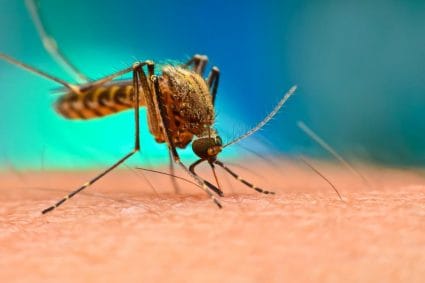
Do you want to know how to prevent pests from entering your tent? Do bugs prevent you from enjoying your camping trip to the fullest?
A camping adventure can be a great experience. Unfortunately, bugs and insects can make it a nightmare.
Besides being a nuisance, bugs can also be a potential hazard to you because they might bite, sting, and transmit diseases.
However, you can keep them away by:
- Avoiding setting up your tent in thick vegetation or a damp area
- Keeping your tent closed always
- Not using fragrances while in your tent
- Storing food in tightly sealed containers
- Avoiding litter and waste around your tent
They can keep you awake all night and dampen the mood for the entire adventure.
Fortunately, with some dependable insect repellents and a few tricks up your sleeve, you can keep these bugs away and have the best camping experience.
In this article, we will share a few tips on how to keep bugs out of the tent, as well as some tips on the best natural repellents that you can use to keep the bugs from coming near your tent.
Top 10 Ways To Keep Bugs Out of a Tent
Below are some very effective tips that can help to ensure that no bugs will come into your tent:
1. Avoid Damp Camping Sites
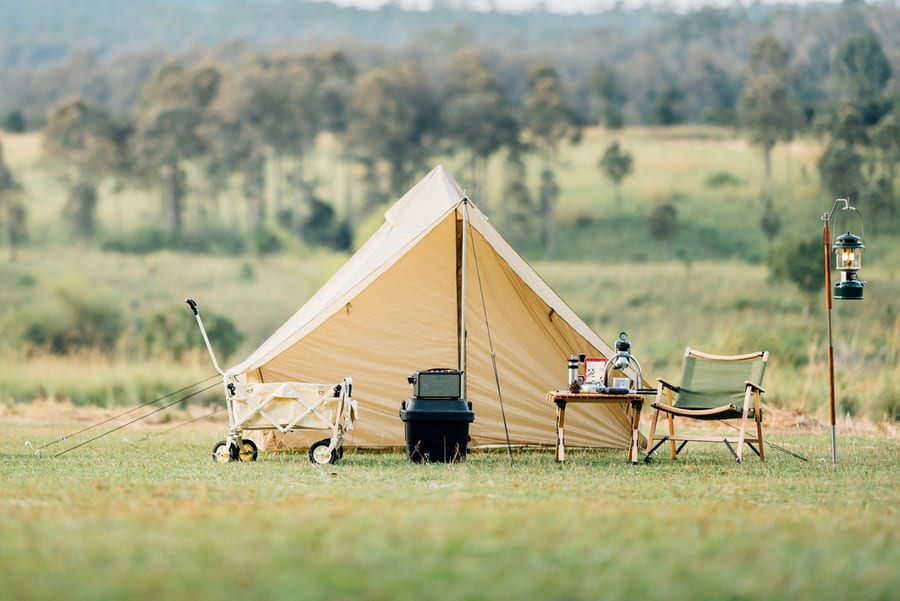
Bugs love damp areas and places with long grass or stagnant water. By selecting a campsite that is clear of any dampness, you have won half the battle.
If possible, also avoid camping near water bodies like dams, lakes, drains, and puddles. These are playgrounds for all sorts of bugs and insects.
2. Keep Away From Thick Vegetation and Trees
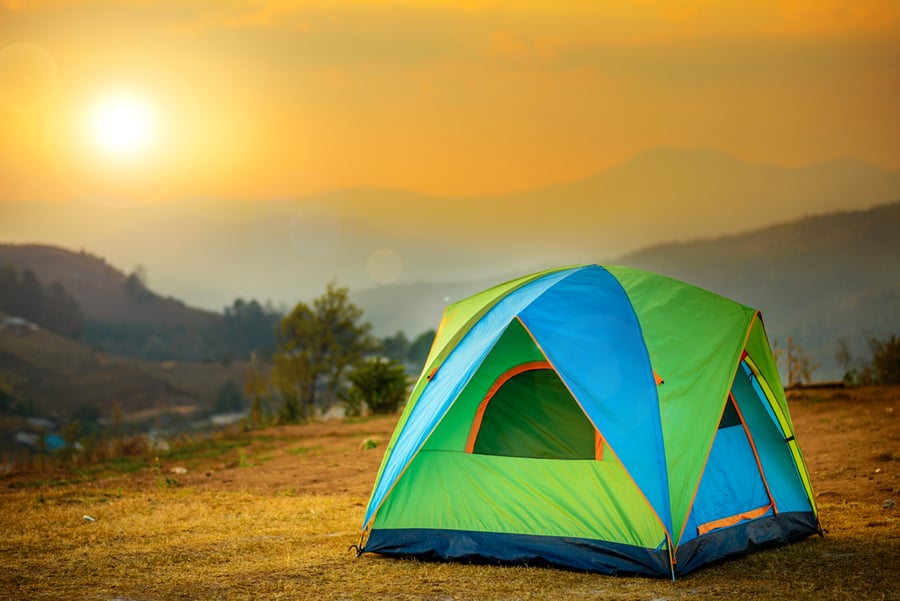
Just like long grasses, thick vegetation and trees create zones of high moisture, increasing the dampness of an area.
Furthermore, such environments with trees and thick vegetation do not allow free wind movement. These are perfect places for insects to stay.
They attract stinging insects like wasps and bees as they also come in search of nectar.
3. Always Keep Your Tent’s Door Closed
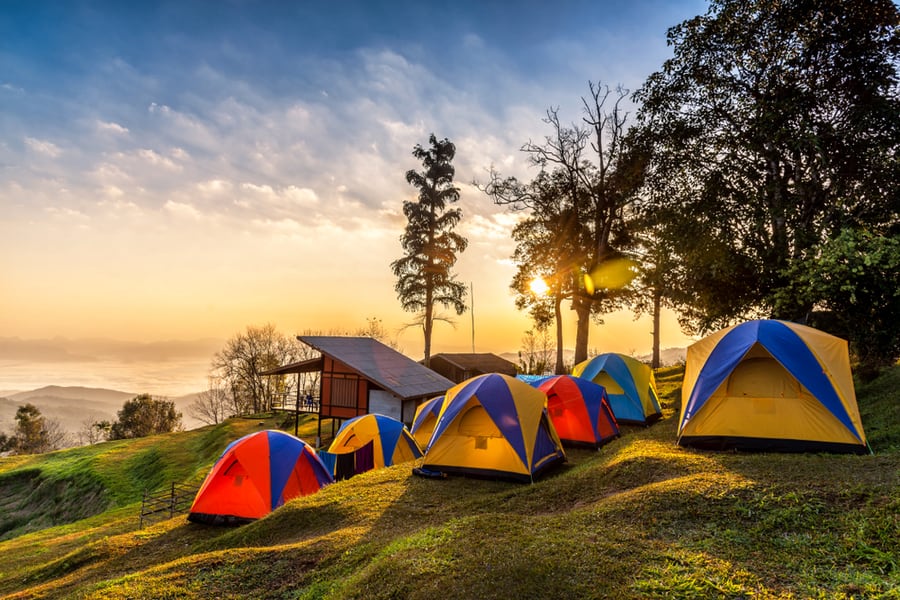
Whether you are making a quick entry or exit from your tent, or you want to stay outside the tent for a while to enjoy a campfire, always ensure that you zip up the inner compartment tightly.
This compartment is what creates a physical barrier between the inside and the outside of the tent.
By ensuring that it is tightly closed all the time (especially the inner door), you keep bugs out and prevent any insects from getting in.
Use a bug net too. A bug net is a mesh screen that you can hang over the entrance of your tent. It will help keep bugs out while still allowing you to easily enter and exit your tent.
Make sure to secure the bug net to your tent so that it does not come loose or create gaps where bugs can crawl through.
4. Set Up a Treated Mosquito Net
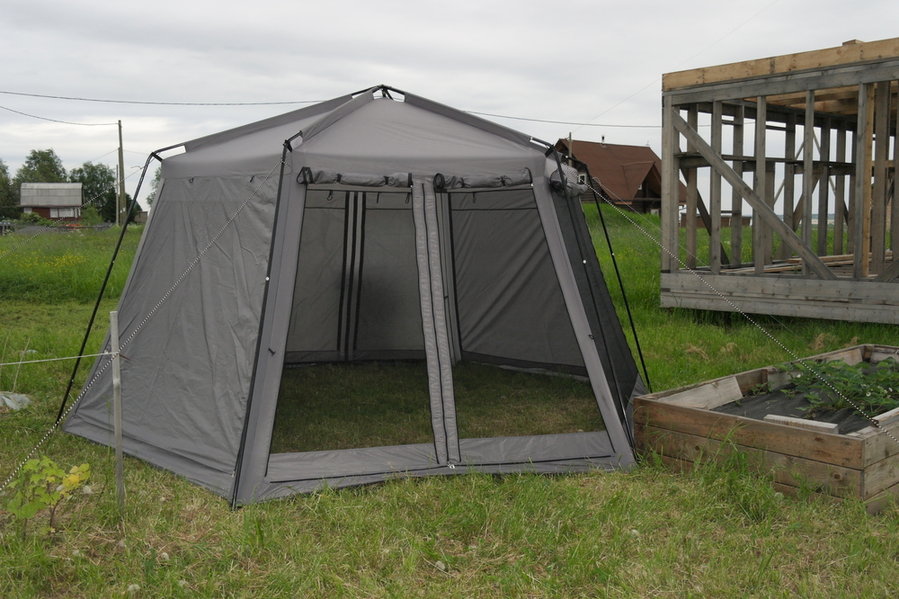
Some tents do not have inner compartments. If this is the case for you, consider setting up a mosquito net inside your tent. The best option is a treated mosquito net that can repel insects.
Have this net draped over the doorway of your tent to ward off bugs and insects.
Also, consider going for a tent with a tightly woven mesh on the windows and vents. This will help keep smaller bugs out.
The mesh serves as a barrier that prevents insects from entering the tent, while still allowing ventilation.
5. Keep Rubbish at Bay
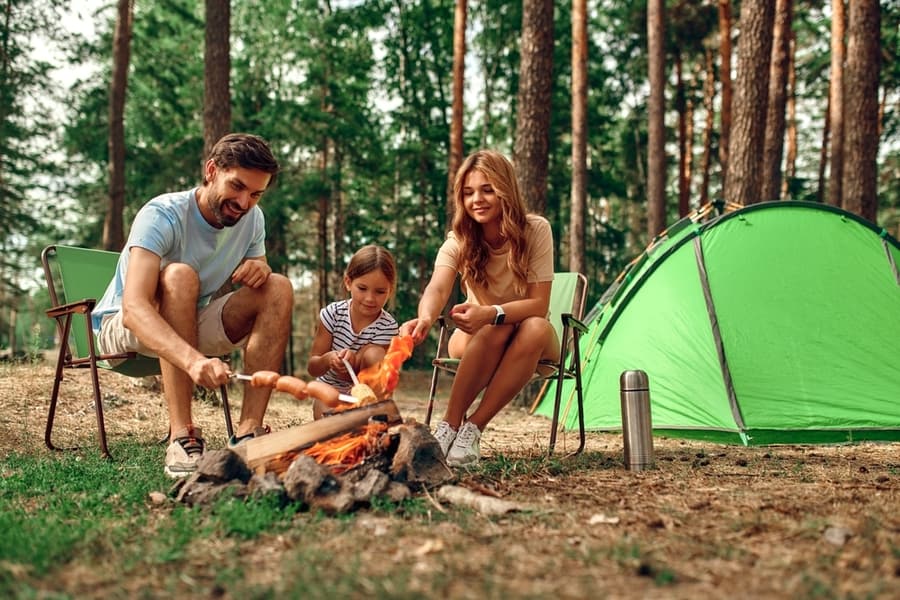
Rubbish attracts bugs and insects. Do not leave your rubbish lying around near your tent.
Dispose of it in the designated bins around the campsite. Furthermore, ensure that you keep your food tightly sealed to avoid attracting hungry bugs.
The same is also true for food preparation surfaces and food dishes. Keep these items clean after using them.
Alternatively, put them in sealable bags that will not allow bugs to enter.
Remember to also not set camp near the campsite’s bins as insects will gather there.
6. Keep the Lights Dimmed
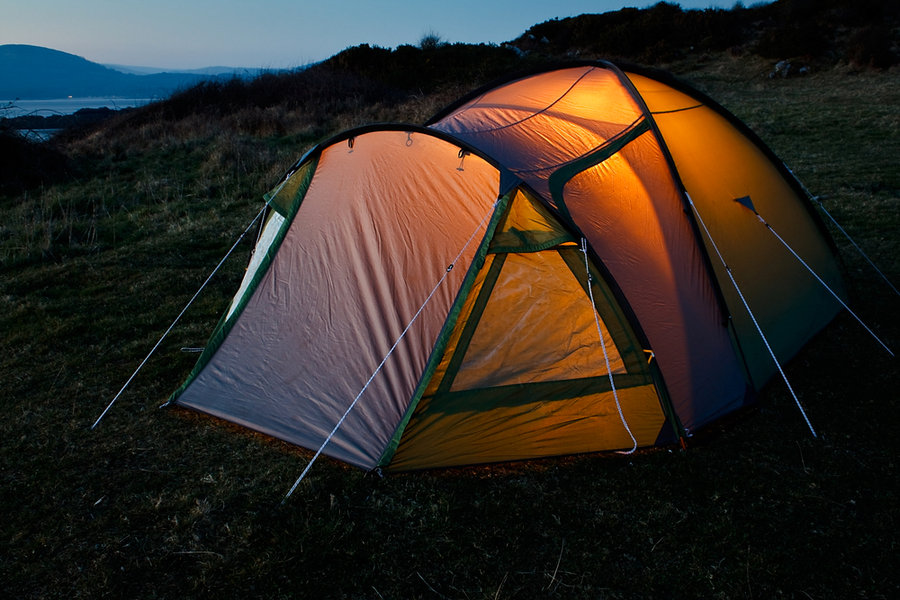
Bright lights at night attract all sorts of insects. As much as possible, avoid shining bright lights in your tent or keeping lanterns on.
If you can, get a red-light torch. It is proven to not attract insects as much.
In addition, do not pitch your tent under a bright lamp as this will mean lots of insects and bugs falling onto your tent and possibly getting in.
7. No Fragrances

Sweet smells attract bugs and insects. Avoid using fragrances while using a tent as your temporary home.
Insects associate sweet smells with flowers and will naturally be drawn to these smells.
Do not spray such fragrances anywhere near your tent or on yourself.
8. Ensure Proper Tent Maintenance
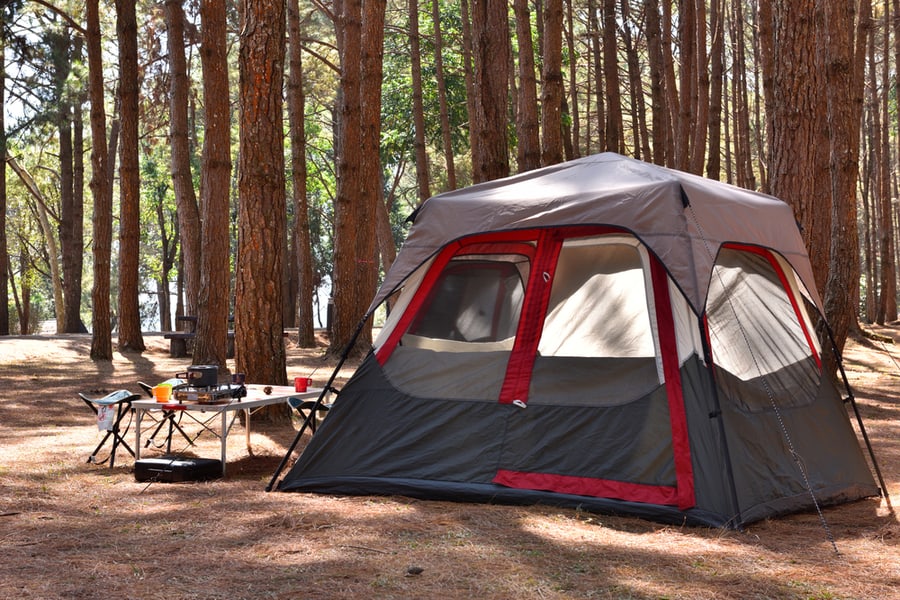
Before going on a camping trip, ensure that your tent does not have holes and tears, which are potential entry points for bugs.
If your tent has any holes or tears, use a seam sealer or repair kit to seal them up.You can also use duct tape to cover any gaps or openings.
If buying a new tent, examine it at the purchase point to ensure that it has no tears or defects that can allow bugs to get inside.
Also, use a tent with a rainfly which is a separate piece of fabric that goes over the top of your tent and helps protect it against the elements. It can also help keep bugs out by creating an extra layer of protection.
Make sure to properly attach the rainfly to your tent, as a poorly fitted rainfly can create gaps where bugs can easily crawl.
9. Use Breezes to Your Advantage
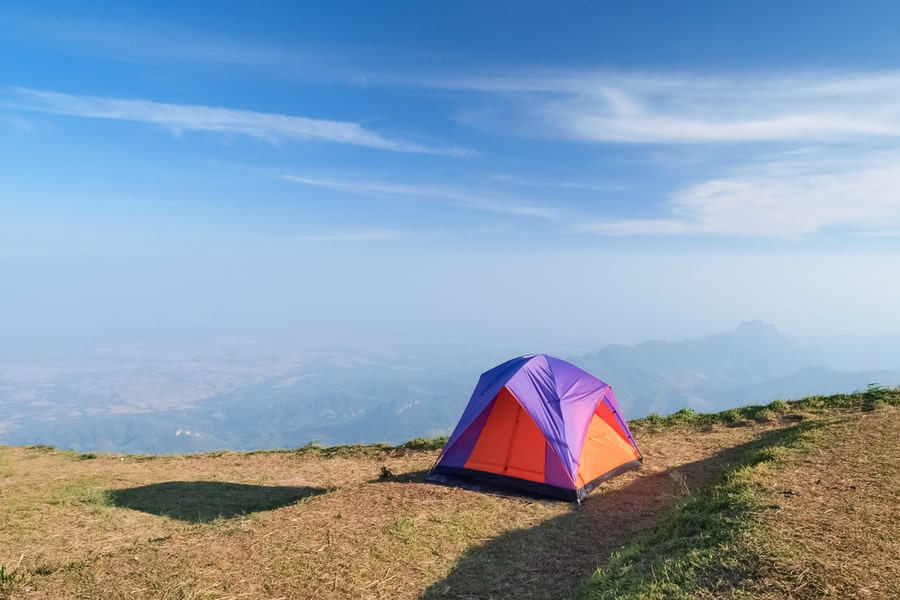
If possible, pitch your tent on a high ground that has less vegetation cover. Such areas have wind breezes blowing making it hard for flying insects to stay afloat.
However, ensure that your tent door faces away from the wind direction.
Doing so ensures that insects are not blown into your tent by these winds.
10. Use Insect Repellent

If you are camping in an area with a lot of bugs, consider using an insect repellent on your skin and clothing. This will help keep bugs from biting you and entering your tent.
There are many different types of insect repellents available, including ones that use natural ingredients like citronella and ones that use chemical ingredients like DEET. Choose a repellent that is appropriate for the type of bugs around the tent.
Also, consider the age of the tent users and follow the instructions on the label for best results.
Expected Bug Types and How To Prevent Them
Depending on the location and the conditions of a camping site, you can expect to find all sorts of bugs and insects.
Below are the common ones that you may encounter and ways to keep them off your tent:
1. Mosquitoes
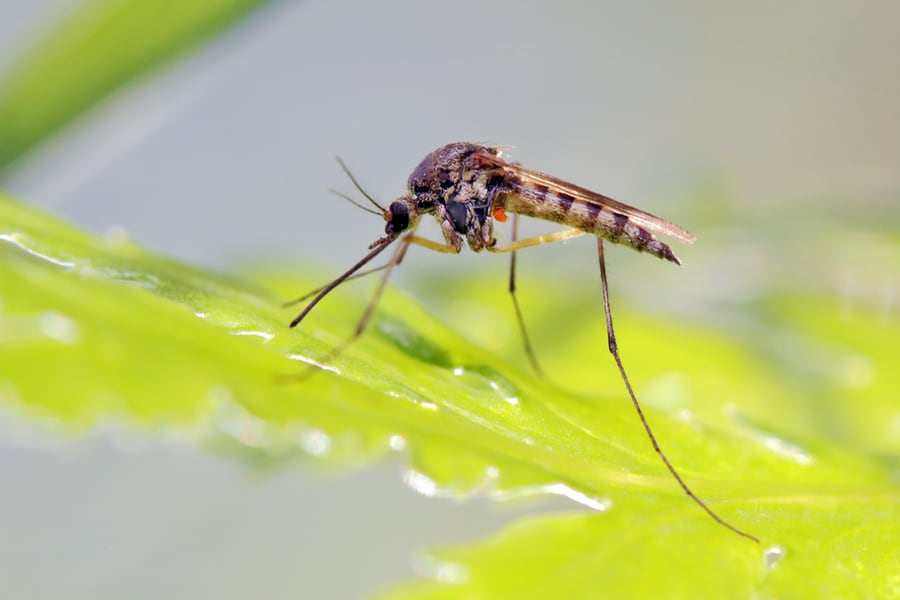
You will come across mosquitoes at most of the camping sites. They are normally excessive in areas with stagnant water or overgrown grass and vegetation.
To keep mosquitoes at bay, ensure that you keep your tent sealed tightly early in the morning (dawn) and in the evenings (dusk). You can also use mosquito repellents that contain DEET.
2. Wasps and Ants
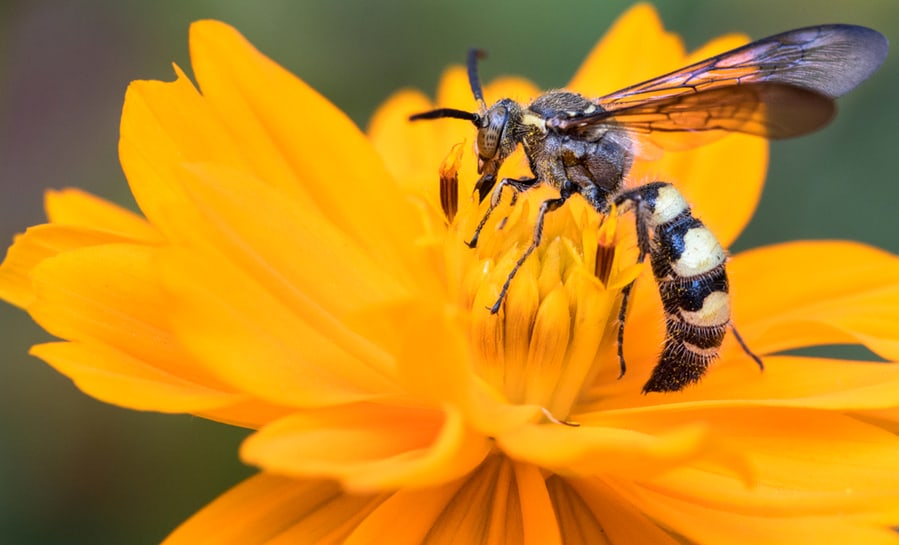
Wasps and ants are often attracted to food and rubbish. To keep them at bay, avoid eating your food or preparing it inside your tent.
Moreover, ensure that you clean all your utensils after eating and dispose of all waste and rubbish in the designated bins.
3. Midges
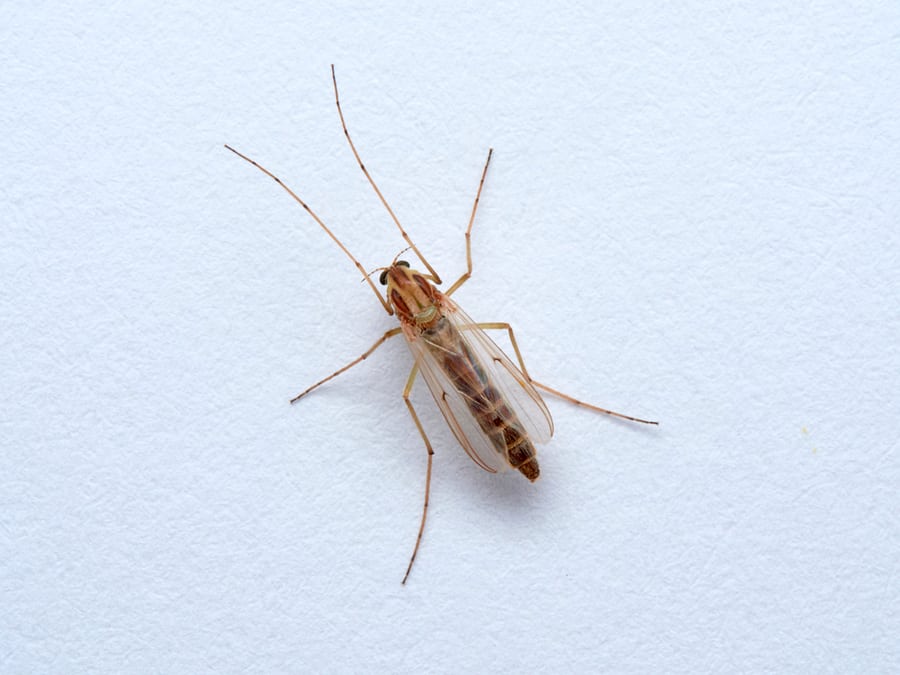
You will encounter midges if you set up camp in areas with thick vegetation and damp grounds.
To keep them off your tent, set up in areas with a good breeze. You can also use insect repellents.
4. Ticks
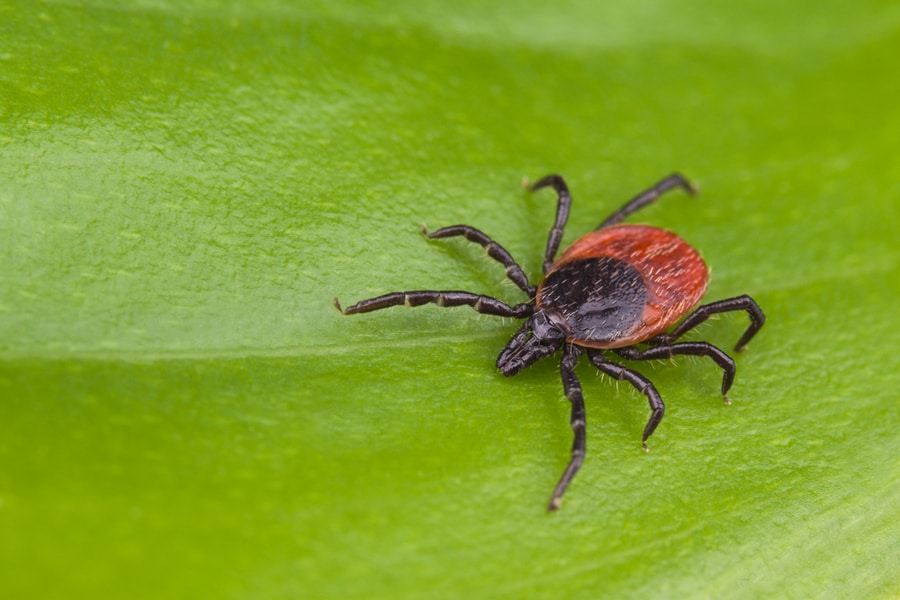
Ticks are common in areas with long grass and wildlife. These tiny bugs are also quite hardy and can survive harsh environments.
To keep them off your tent, use a repellent that contains DEET. Also, avoid setting up camp in the long grass.
Conclusion
By following the tips above, you can help keep bugs out of your tent and enjoy a more comfortable and peaceful camping experience.
Remember it is easier to keep bugs out of your tent than to get them out once they are inside.
Frequently Asked Questions
What Can I Put Around My Tent To Keep Bugs Away?
Interestingly, there are some natural bug repellents that you can use to keep bugs away from your tent. Some good examples are white vinegar and apple cider vinegar.
These two are very effective natural bug repellents. Insects are not fond of their overpowering scent.
You can spray them on your skin, around your tent, and even around the campsite to ward off insects and bugs.
What Naturally Keeps Bugs Away?
Bug-repelling qualities can be found in the essential oils of lemongrass, citrus, peppermint, eucalyptus, tea tree, citronella, catnip, and lavender.
These oils can be used separately or in combination to create a highly effective anti-bug concoction.
In a tiny spray bottle, combine around one cup of water and thirty drops of essential oil.
How Do I Get Rid of Mosquitoes in My Tent?
First, use the proper tent etiquette by keeping the tent closed at all times.
Second, set up your tent on a dry high ground. You can also start a campfire and use mosquito sticks to chase mosquitoes away.
If you can, have lemon eucalyptus spray with you. Spraying it keeps mosquitoes at bay.
Finally, wear the right clothing to cover your body and avoid mosquito bites.








